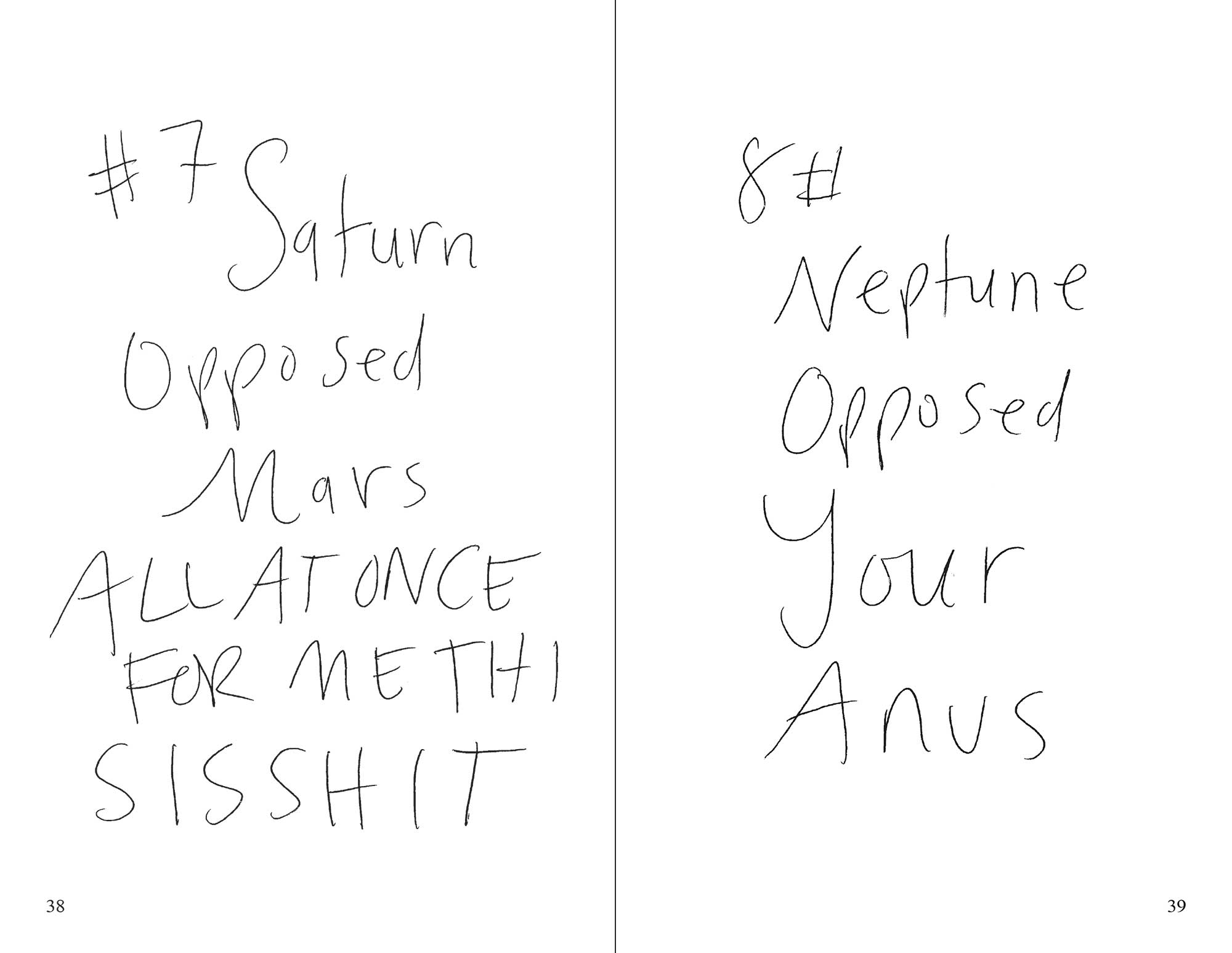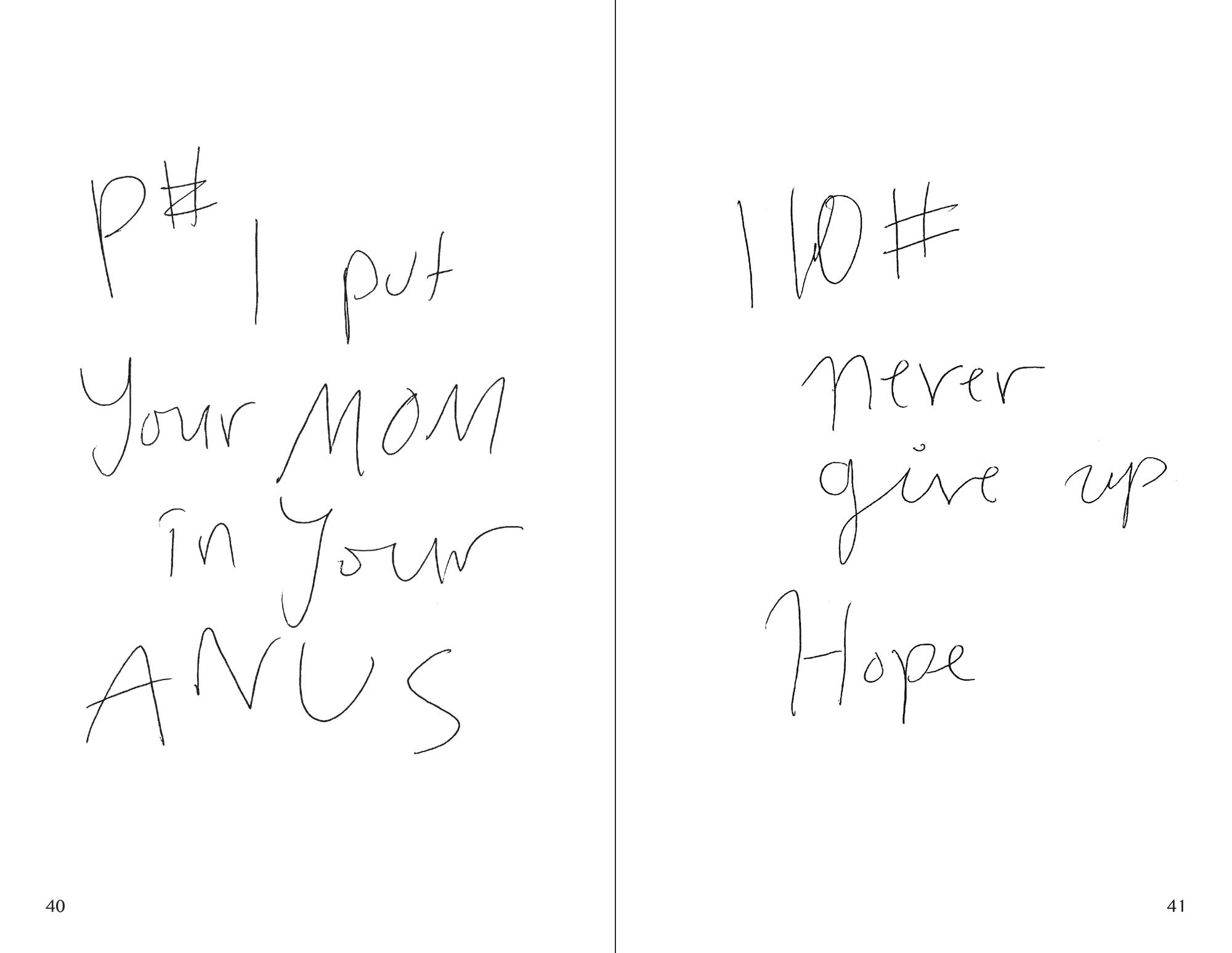Joseph Bradshaw
The New York School
Publication Studio
reviewed by Curtis Emery
In Joseph Bradshaw’s second book of poems The New York School, his voice exists in an area that is between all seriousness or playing: “I’m either not or I’m just fucking playing. Actually that’s a distinction only you can make” (67). And, this distinction between what Bradshaw deems “not” and “just” becomes the reader’s call to action in reading this collection. The book is a continuous “gathering process,” as he says at the beginning of the book.
What is the impossibility of poetry to a definitively possible world? How is poetry, is beauty, is imagination, is shitting, is the queer body poetic and so forth? What then is Joseph Bradshaw? In the idiom of this collection, it is a collection of father cocks laid out in the multiplicity of an empathetic terrestrial poetry. A terrestrial poetry which mimics the ebb and flow of urban and rural breath lines. Breath lines which pull in and out of each and every one of us. “‘For Man and Earth suffer together,’” incarcerated by pollution, by failure and uncertainties bordered by “the sky and the world that is there” (53).
The New York School examines beauty and life; friendship and dailiness. A grouping of poems which exalts a self while simultaneously celebrating a collection of selves which are interchangeably a same self-made multiple through experience. Through a decision of the penis. Through the fantasy of Ted Berrigan and Paul Thek and Barbara Guest (if Bradshaw must) and a sexualized Jack Spicer and neglected John Giorno and a spirited Lou Reed and an angelic Ariel Pink. A wild sexual fantasy where Frank O’Hara and New York watch on ecstatic. Where the static tones of daily life are pulverized in a feverish listing of names and places and brands. Laugh with Joseph Bradshaw—he is just playing. Playing with designer clothes. Playing with poetic canon. Playing with mortality and capitalism and beauty. Playing in all seriousness, Bradshaw is playing with form to transform himself. Through pages of conventional lyric, through prose, through hand scrawled passages and essay, Bradshaw is blessing the act of writing by calling out its many names.

The breath, urban parks, sex juices and all, flowing together through Bradshaw’s literary vision which is a portrait of himself and his friends and his enemies. Bradshaw is considering possibility. The possibility of his poetry amongst New York City’s psyche which has been molded and saturated with great writing and experience. All of this is accessible to Bradshaw. It is the writing on Allen Ginsberg’s wall, stinking of Peter Orlovsky’s shit; available to Bradshaw in New York’s physical streets and metaphysical histories which abound in the aesthetic atmosphere of the city’s continual tome. It is Bradshaw smoking a joint with Paul Legault dreaming of James Schulyer. And it must be beautiful. And IT IS beautiful. Bradshaw depends on all of this living precariousness. “My life is held precariously in the seeing hands of others,” says O’Hara says Bradshaw (25).
A beautiful moment so early in the book becomes a mantra. Bradshaw writes, “I don’t need to know anything about air to breathe…the comparison between air and poetry arcs so nicely” (25). This is the beauty of imagination. An active imagination in the book which pushes for transformation, an imagination which allows Bradshaw to recreate his friends and idols in his own literary history that runs parallel with reality. Especially beautiful considering the G-train and men’s restrooms drowned in piss covering your shoes—how the New York City of Bradshaw’s mind is cluttered in perfect experience that both continues and relieves his perpetual boredom. A boredom that drives him to fill notebooks, bound talismans with which he considers and counters the world around him. “I want to be compelled at all times to do only what I need only what is necessary I am not greedy.” What is necessary is that Bradshaw has a “clear hand to guide” him, to realize that what he writes is a part of him (86). Giving less than two shits about the bodies that surround him while simultaneously loving them. “I only care if you read me,” says Bradshaw while with the same lips he dangles above with the souls of the working class and encourages erections.

Hyper-sexual platitudes harken old testament scripture and devour alongside modern-day slogans that blur together in the same prophetic chaos outside the serpentine routine of the subway. Bradshaw enables the meeting of personal moments, personal fantasies aligned next to the prison system, the destruction of the environment and the otherness of subversive bodies. Aligning a variety of experience to separate and include; categorize and convene—sometimes with a logic; other times in a frenzy which blurs reality and possibility and personal and public. The transformation of a new body. A transformation made possible through stating fact and object; transformation through constant naming. Specifically, the naming of people. Bradshaw follows Christopher Smart in the way of Jubilate Agno as Bradshaw voices names as a blessing; “an expression of desire.” He goes further and explores the idea of transformation over time; in the absence of the human body: “Christopher Smart just gave me a brilliant idea. If everyone says the name of someone else and we all make sure everyone’s name gets said, and we tell our children to say the names we say, and they tell their children to say our names and theirs, and their children say our names to their children (and so on), maybe this is how love will renew our static names” (54).
This same work is Bradshaw’s purpose. He aims to name truth and bring about beauty. His aim is in the revelation of truth to those whose hearts are open and to open himself in the process. “If I write like I’m in a dungeon I feel like everything I say is true therefore everyone who listens will feel aghast at the beauty of it” (87). A sentiment which plays nicely off of the backdrop of New York City, a dungeon of wonderment and inspiration wholly terrifying and never ending imagination. A city from where Bradshaw yearns for experience all the way to the west coast, though holds himself, resolute, complete in his undertaking to understand and grow in The New York School he has become and created. A gathering process which necessitates the past, the present and the future in order to capture and render the vision of a poet. A poet attempting to make sense of his place in the poetic stream; standing in a circle, amongst his friends, silenced by the wonderment of the word.
